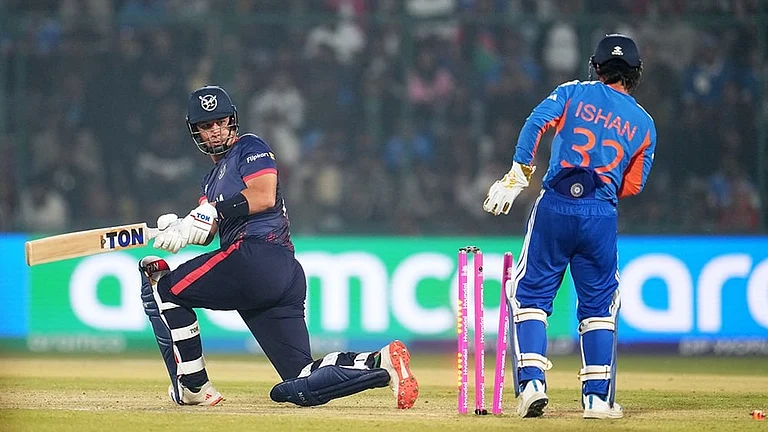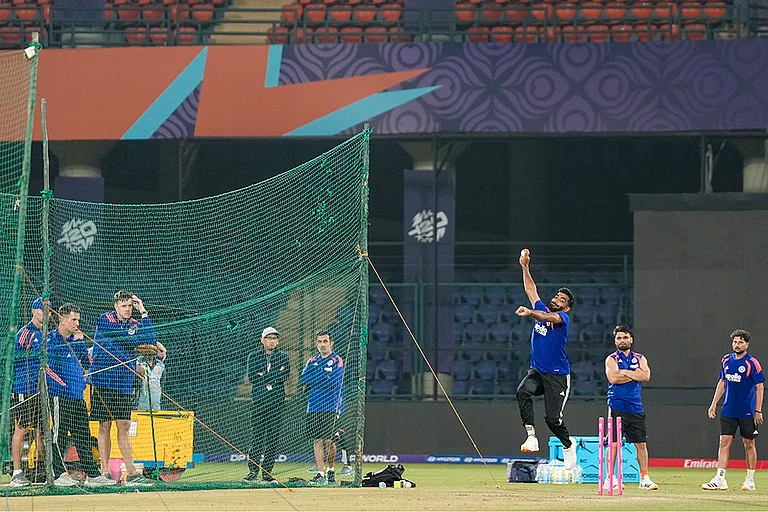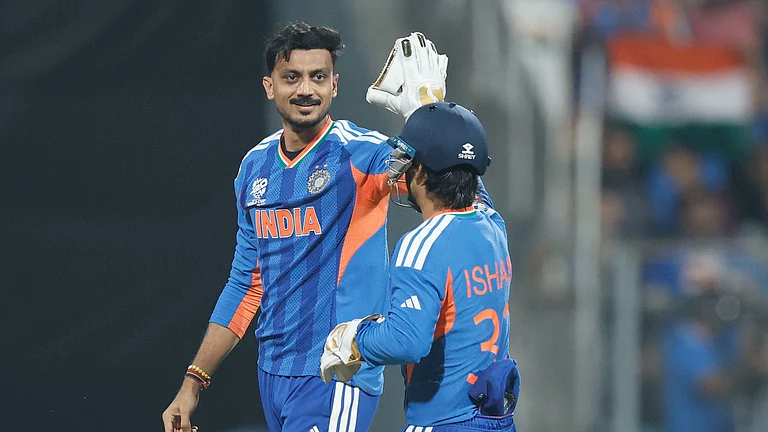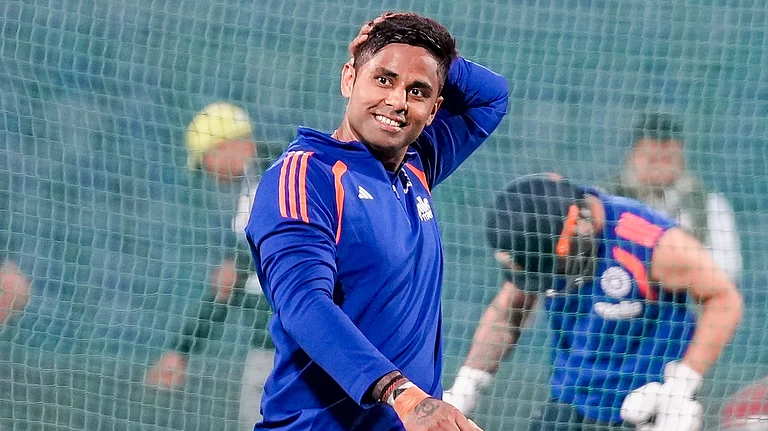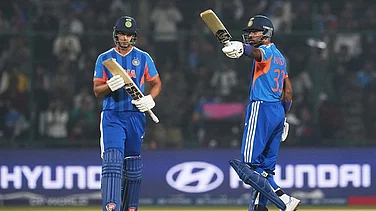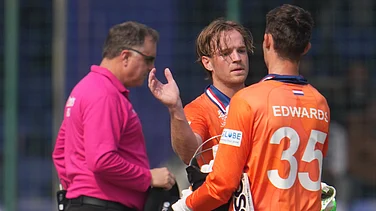2003 was a landmark year. The United States of America began its invasion of Iraq, leading to the breakout of the Iraq War. Yugoslavia’s seven-decade-long existence ceased in favour of a newly-minted moniker Serbia and Montenegro. Myspace came into being. The Human Genome Project reached its conclusion. Frodo destroyed the One Ring; Neo chose to save Trinity over the Matrix. A fresh-faced Roger Federer won his first Grand Slam.
Charting his own little piece of understated history from the central Namibian polis of Windhoek, Rudie van Vuuren set about becoming the first individual to compete in the World Cups of two separate disciplines. Van Vuuren was thirty, a practising physician, and a Rugby World Cup participant in 1999 (albeit without any minutes on the pitch) when the opportunity to compete at the 2003 ICC Cricket World Cup presented itself.

Namibia, a burgeoning cricketing nation, had confirmed their maiden tournament berth by finishing second in the ICC Trophy two years prior, thanks in part to Van Vuuren’s stellar displays. In early 2003, they crossed into neighbouring South Africa to contest their first-ever World Cup - Van Vuuren, a right-arm medium-fast bowler, among the most experienced members of the largely amateur squad.
Rain washed down Namibia’s Cricket World Cup debut, who lost to Zimbabwe by 86 runs as per the Duckworth-Lewis-Stern Method. Six days later, the minnows found themselves in a dissimilar but equally treacherous situation, staring at the unwanted record for the lowest total in a 50-over World Cup game - 45. With the team 42-9 against a devastating Pakistan bowling attack, Van Vuuren entered the field with just one input from the team manager: keep Namibia out of the record books.
Facing the collective might of Waqar Younis, Wasim Akram, and Shoaib Akhtar, Van Vuuren guarded his stumps with composure and sensibility, dovetailing nicely with Bjorn Kotze to take Namibia’s final score to 84. The debutantes still lost by 171 runs - and would fail to win a game throughout the tournament - but the right-arm fast bowler finished the match as his team’s joint second-highest run-scorer.
"It was a great experience playing against the top of the world's best players," said Van Vuuren - who had even managed to rile Younis during his brief appearance by criticising his seamers - in an interview with the BBC. "Sport at that level is a mental thing. If you're going to be intimidated by a ball of 160 km/h, you don't belong."
Later in the tournament, Van Vuuren claimed five wickets against England and two against India, including the legendary Sachin Tendulkar, whose acknowledgement stayed with the Namibian.
"When he had eight runs or so, I bowled him an absolute screamer, and he played, missed, looked at me and nodded his head," He told BBC. "Over a hundred runs later, I eventually got him!
"I asked him for a photo, and he sat down with me, and we talked for a long time. I remember thinking, 'what an incredible sportsman - so humble, so successful, never controversial and here he sits down with a Namibian player - he doesn't need to do it.' It was a humbling experience."
Born in Windhoek and raised in South Africa, Rudie van Vuuren was a doctor before a sportsman. Leading the fight against HIV/AIDS in Namibia, the Windhoek native once helped deliver 70 children in his clinic in the time elapsed between the Cricket and the Rugby World Cups of 2003. He would also count Dr Hage Geingob, former Prime Minister and later President of Namibia, among his clients and helped develop the team that cares for his health.
In the latter parts of 2003, eight months after his ICC Cricket World Cup appearances, Van Vuuren chartered the plane to Australia to participate in the Rugby World Cup. History beckoned the Windhoek native, soon to be the only individual to have participated in the World Cups of two separate disciplines in the same year. But, a torn calf on the eve of the tournament forced him to sit out Namibia’s defeats to Argentina, Ireland, and Australia.
Van Vuuren would not let go of his dual World Cup dream, however. Full of determination and with the aid of pain-killing medicine, he entered the fray for the final ten minutes of Namibia’s last group game against Romania. The southern African side lost again, but Van Vuuren would return home with his name forever etched in sporting history.
New Zealand and South Africa will contest the 2023 Rugby World Cup final on October 28, with England facing Argentina in the Bronze Final a day earlier.
While Namibia failed to qualify for the ICC Cricket World Cup 2023, neighbours South Africa did, and are in fine form. They are second after five games in the league stage, two points behind India.







